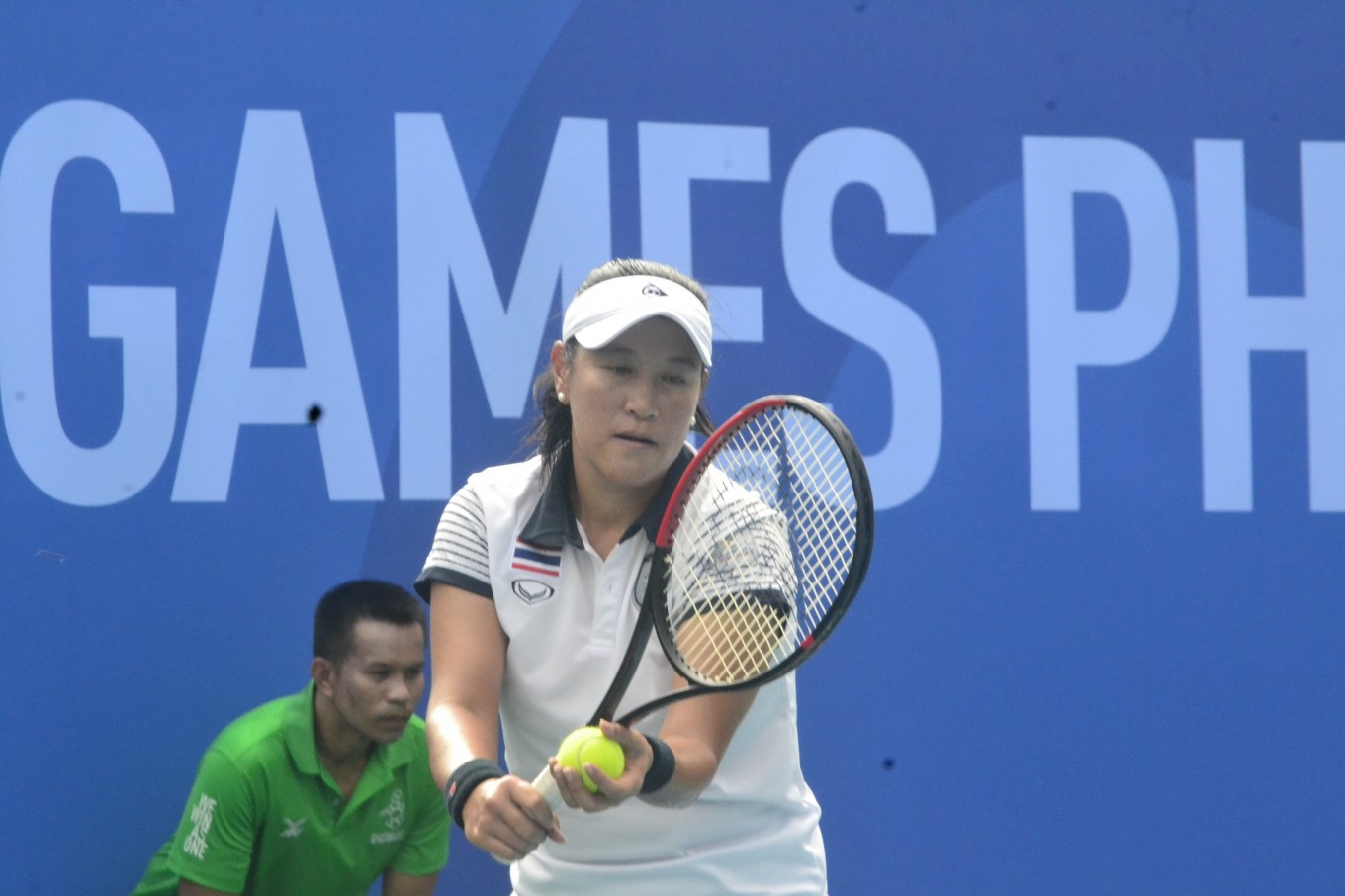Popular Reads
Top Results
Can't find what you're looking for?
View all search resultsPopular Reads
Top Results
Can't find what you're looking for?
View all search resultsHonestly, ‘Look to Thailand and Vietnam’ the best policy
These two neighboring countries have demonstrated strength in almost all medal events that feature the SEA Games. Their achievements, if not supremacy, in many sports, are testament to their effective training programs that have allowed their athletes to perform at their best.
Change text size
Gift Premium Articles
to Anyone
F
irst of all, let us praise our athletes for their determination during the just-finished 30th Southeast Asian (SEA) Games in the Philippines, bringing home 72 gold, 84 silver and 111 bronze medals. Such fortitude helped them pass their ultimate test during the 12-day event.
We saw how Edgar Xavier Marvelo, one of Indonesia’s wushu stars, had to fight back tragedy after hearing the shocking news of his father’s demise but who went on to win gold medals. Edgar dedicated a pair of golds to Indonesia and his late father.
We also need to credit the support system behind the athletes. All the coaches, the sports federations, the National Sports Council (KONI), the Indonesian National Olympic Committee (NOC) and the Youth and Sports Ministry contributed greatly to the athletes’ achievements.
Despite the failure to fulfill President Joko Widodo’s expectation of finishing second overall, our medal collection far surpassed our feat in the previous SEA Games in Kuala Lumpur. Two years ago Indonesia slumped to its worst performance with only 38 golds to finish fifth.
It is, therefore, safe to say the national team showed improvements in the most recent SEA Games. But a critical view is imperative. As critics have put it, the real test comes at the end of a journey.
As the dust resulting from the Games settles we arrive at the famous intersection of mind that will force us to choose between complacency and curiosity. The latter means identifying flaws and finding ways to fix them.
In most cases, we tend to mix the two. While we resisted complacency, we actually did almost nothing to make amends for our mistakes. Indonesia’s showing in the SEA Games over the last few decades, except when we played host, was evidence of this tendency.
The 2005 National Sports System Law mandates that the national sport system be built upon a regime of athlete development originating from rigorous recruitment. Nothing is wrong with the law, but as always, the problem lies with its implementation.
There has been a chorus of criticism that laments the absence of significant improvements in the national sport system. The classic combination of “money and power” as the recipe to run a sports federation remains in place.
Sports federations continue to rely on strong and steady hands, both financially and politically, if they are to generate achieving athletes. As a result, athletes in certain sports enjoy decent treatment and training while many others do not.
Badminton and track and field federations, for instance, are lucky enough as they receive huge support from respectively tobacco giant Djarum (whose owners are in the Forbes list of the world’s wealthiest) and Mohammad “Bob” Hasan, one of Indonesia’s first billionaires. The two sports federations have managed to scout and groom the best talent in a sustainable manner.
Emulating the success of these two sports federations, the government is now mulling a new strategy that will involve state-owned enterprises. This may be a good idea, but the government must carefully prepare a clear mitigation mechanism that would reward the actors with both “carrot and stick”.
Or in a simpler way, Indonesia could just copycat neighboring countries Thailand, which has enjoyed consistent hegemony in the SEA Games, or Vietnam, which has emerged as a serious contender as evident in the last two editions of the regional sporting event.
This year, Vietnam finished second overall, with 98 golds, 85 silvers and 105 bronzes to outshine Thailand, which collected 92 golds, 103 silvers and 123 bronzes for third place.
These two neighboring countries have demonstrated strength in almost all medal events that feature the SEA Games. Their achievements, if not supremacy, in many sports, are testament to their effective training programs that have allowed their athletes to perform at their best.
If necessary, Youth and Sports Minister Zainudin Amali could learn from the sports authorities of both countries, observe meticulously every step they have taken and look at details in their training plans and funding schemes.
Zainudin could spend a couple of weeks on a comparative study trip, and after arriving home he could prepare a presentation that translates his strategy to help Indonesia regain its past glory in the SEA Games. While political support from the House of Representatives is key, as the strategy will involve the state budget, public debate is compulsory so as to find the best model of national sports development.
The sports ministry cannot do the job overnight or do it all alone. It may take the ministry a year or more and require assistance from, among other institutions, the Education and Culture Ministry, to come up with a grand scenario, including its monitoring and evaluation mechanism.
Who knows whether Indonesia’s decline in sports stems from a lack of stimuli for athletes to do their best or from schoolchildren not choosing sports as their future.
Without doubt, the government and all stakeholders need not only to work hard but also work together to make sports development work. Just like President Jokowi’s old mantra “work, work, work”.











